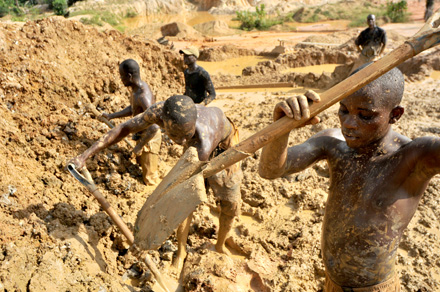Suffice it to say that natural environment must outlive human beings unless unthinkable or unspeakable happens.
By the courtesy of our maker, Ghana is a country of impressive topography, geography and more land than the people.
Unfortunately, begotten from a womb of impunity, a cub called illegal mining known in the local patois as “galamsey†is depleting, if not destroying our natural environment specifically the water bodies. Rivers Pra and Ankobra have been polluted beyond imaginations.
What is particularly nauseating is that Chinese nationals have travelled from so far afield in China to Ghana engaging in gold mining without recourse to the laws. Together with their Ghanaian accomplices, the Chinese had damaged the rivers and other environmental resources. Maybe we are waiting for an acute water crisis in Ghana so that our prophets will have enough to say.
The purpose of this write up is to look at the Chinese environmental issues and determine whether Chinese nationals have locus standi to engage in galamsey in Ghana.
Ma Jun is not only a journalist, but a Chinese environmental consultant and director of institute of public and environmental affairs. He is reported to have asserted that “Pollution is a serious one. Water pollution, air pollution, and then solid hazardous waste pollution.
And then beyond that, we also have the resources issue. Not just water resources but other natural resources, the mining resources being consumed, and the destruction of our ecosystem.†The environmental policy in China is enacted by the legislature: People’s National Congress, and regulated by the ministry of environmental protection.
China is saddled with the problems of non-compliance, weak and slow enforcement of environmental laws (Van Rooij, 2006). This has resulted in a series of environmental problems in China including water pollution. The State council of China came out with bold plans to ameliorate the water conditions in China. “The Plan establishes specific water quality targets for 2020 and 2030, with an ultimate goal of achieving comprehensive improvement by 2050.
The Plan states that by 2020, 70% of the water in China’s seven major watersheds and 93% of the drinking water sources in prefecture-level cities are to meet an acceptable standard. By 2030, the Plan raises these targets to 75% and 95%, respectively.
The Plan also calls for the reduction of the prevalence of black and odorous water bodies in prefecture-level cities to less than 10% by 2020, and the elimination of this problem by 2030.†Discerning readers can check the following link: http://www.bdlaw.com/news-1734.html
According to the 2012 UN-Water resources report on Ghana, “seven percent of the total water withdrawal is withdrawn by industries. As the country is a major gold producer, mining is a predominant activity. This extractive industry (including mining for other minerals) uses large volumes of water for its operations and discharges its effluents into the rivers.
Monitoring of the major registered mining companies by the Ghana Environmental Protection Agency indicates that generally there is compliance to the set specifications with regards to pollution.
On the other hand, registered small-scale gold mining groups represent a major source of pollution in the areas where they operate. Also their locations are often unknown until a major disaster strikes. The Pra and the Ankobra rivers in the Western Region are heavily polluted by these mining activities†Readers can follow this link: http://www.unwater.org/fileadmin/user_upload/unwater_new/docs/Publications/GHA_pagebypage.pdf
The above report is an evidence-based one revealing the negative effects of galamsey on Pra and Akonbra rivers. Mining is done in the Chinese portion of the Mekong River but it is not as polluted as rivers Pra and Ankobra in Ghana. To borrow the words of Abraham Lincoln, Nobody has a “registered oath in heaven†to destroy our water bodies. Ghana is now a Jungle Republic where Chinese can come and mine gold illegally with the aid of some unscrupulous citizens? Let us be a bit serious as a country.
Let us clamp down the Chinese illegal miners now so that they do not become part and parcel of Ghana’s economic cultural systems in future. In Aminata Sow Fall’s book, “The Beggars’ Strike†the beggars went on strike that they will not beg again when the city authorities saw their presence on African Streets as a nuisance to tourism.
The beggars were on strike because they inadvertently became integral part of the society. In sociology, structural-functionalism places emphasis on the interconnections between different institutions, individuals within a society (Eriksen, 2015). If care is not taken, in the near future, Chinese nationals in their hideouts will see themselves as an inseparable part of Ghanaian social structure especially if they intermarry with local folks. When this happens fighting galamsey will be difficult. There were news reports of Chinese Embassy angry over treatments meted out to Chinese galamsey operators in Ghana. Can Ghanaians engage in illegal mining in China?
Water pollution in China cannot be transferred to Ghana. Water is life and anyone who depletes water bodies is a murderer. Chinese are welcome to invest in Ghana, but they must comply with our laws. Galamsey must be abolished in Ghana now. Ghanaians helping the Chinese to destroy our rivers must know that if they mine every gold and have no water to drink, they cannot survive. We must eschew politics and fight the menace of galamsey in Ghana. God Bless Our Homeland Ghana.
Source: Nana Yaw Osei





